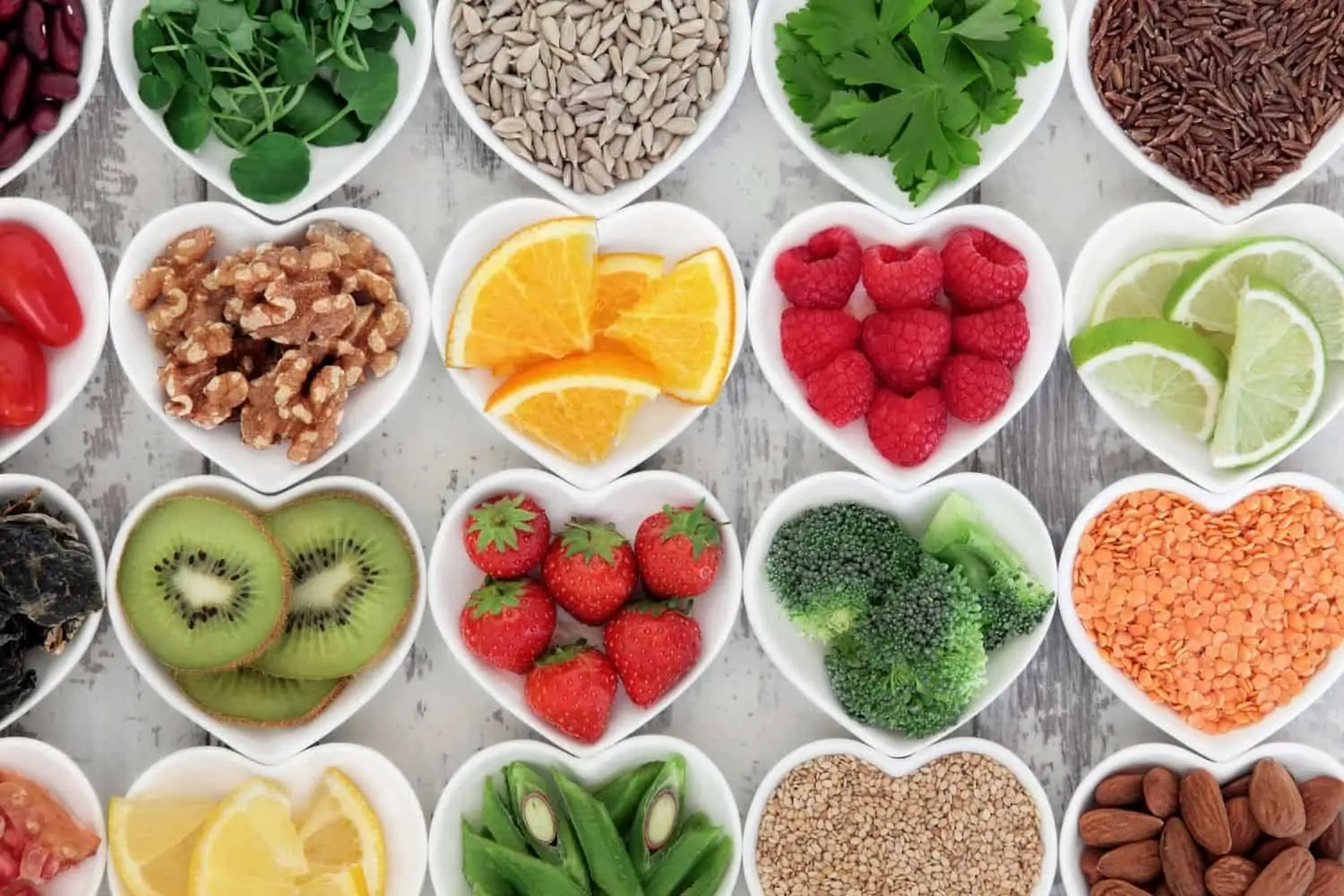Table of contents
Getting in all the nutrition that the human body needs on a daily basis is crucial to maintaining a full and healthy life, be it from minerals, vitamins or macronutrients. Each is as important as the other. Often people wonder as to what the secret is to fighting age-related decline or having a super immune system that means one doesn’t get sick or recovers quickly from any ailments. Well, the reality is, the answer is both simple and complex. The simplicity is in knowing that most of the time it all comes from just feeding the body the nutrition that it requires to function. But the complicated part is understanding your own body and exactly how much of each nutrient it wants and when it wants it.
It’s a little bit of a balancing act for some of us that have lost touch with our bodies. But only in the beginning. Once we start feeding our systems the right way and learning to have open communication lines with them, things get much easier. Eventually, it all comes naturally, as it should.
How Nutrients are Grouped
Nutrition is a complicated topic, but I find that if I can structure something, at least to some extent, it all becomes easier to picture and understand.
As a rule, nutrients can be split into two main groups, macronutrients and micronutrients. Macronutrients are nutrients consumed in relatively larger quantities. They are protein, fat, fibre and carbohydrates, as well as water. In general, they are what support energy and growth within the body. Micro nutrition refers to the nutrients that are consumed in smaller (or micro) amounts and constitute the vitamins and minerals that the body needs on a daily basis. Micronutrients are generally considered protective aids.
Important Factors to be Aware of
First off, I must note that most foods contain a mixture of different nutrients but will have more of one nutrient than the others. As a result, we simply group foods according to the most abundant nutrient that they carry. Secondly, it is important to know that many nutrients come in different forms. So, for example, vitamin B12 found in some vegetables is not processed in the same way as the vitamin B12 found in many animal products. And lastly, some nutrients require the presence or assistance of other nutrients in order to perform the way the body needs them to.
It all sounds very complicated, but it is important to simply be aware of these factors. So when you do read something telling you, for example, that you can up your calcium intake through consuming more dairy products, you know that you may also need to up your vitamin D. Because vitamin D plays an important role in the absorption of calcium.
Daily Nutrition Vitamin Intake
Vitamins, in particular, are referred to as protective aids in our daily nutrition. The name vitamin originates from the Latin word “vita”, meaning life. And as their name implies, they are vital to our existence.
Vitamins are further broken down into two main groups,
- Fat-soluble: they are insoluble in water and can only be utilized by the body if there is enough fat available.
- Water-soluble: being soluble in water, which is ever-present in the body, these vitamins cannot be stored by the body.
Vitamin A
Vitamin A is important for our eye health, and it also helps to heal our epithelial cells, which are the cells within our gut, respiratory and genitourinary linings.
In general, women need 700 micrograms per day and men should look at 900 micrograms per day. It is strongly recommended that you don’t exceed 2000-3000 micrograms per day. Too much vitamin A could result in headaches and nausea, amongst other things. And particularly high doses (200 000 micrograms and up) could prove fatal. But bear in mind that vitamin A is fat-soluble and can be stored in the liver for 2-4 years. So, as with most nutrition, sticking to a moderate daily intake of this vitamin is crucial. If you have a vitamin A deficiency, the first signs will most likely show through your eyes. They may become dry and itchy and night vision will become impaired.
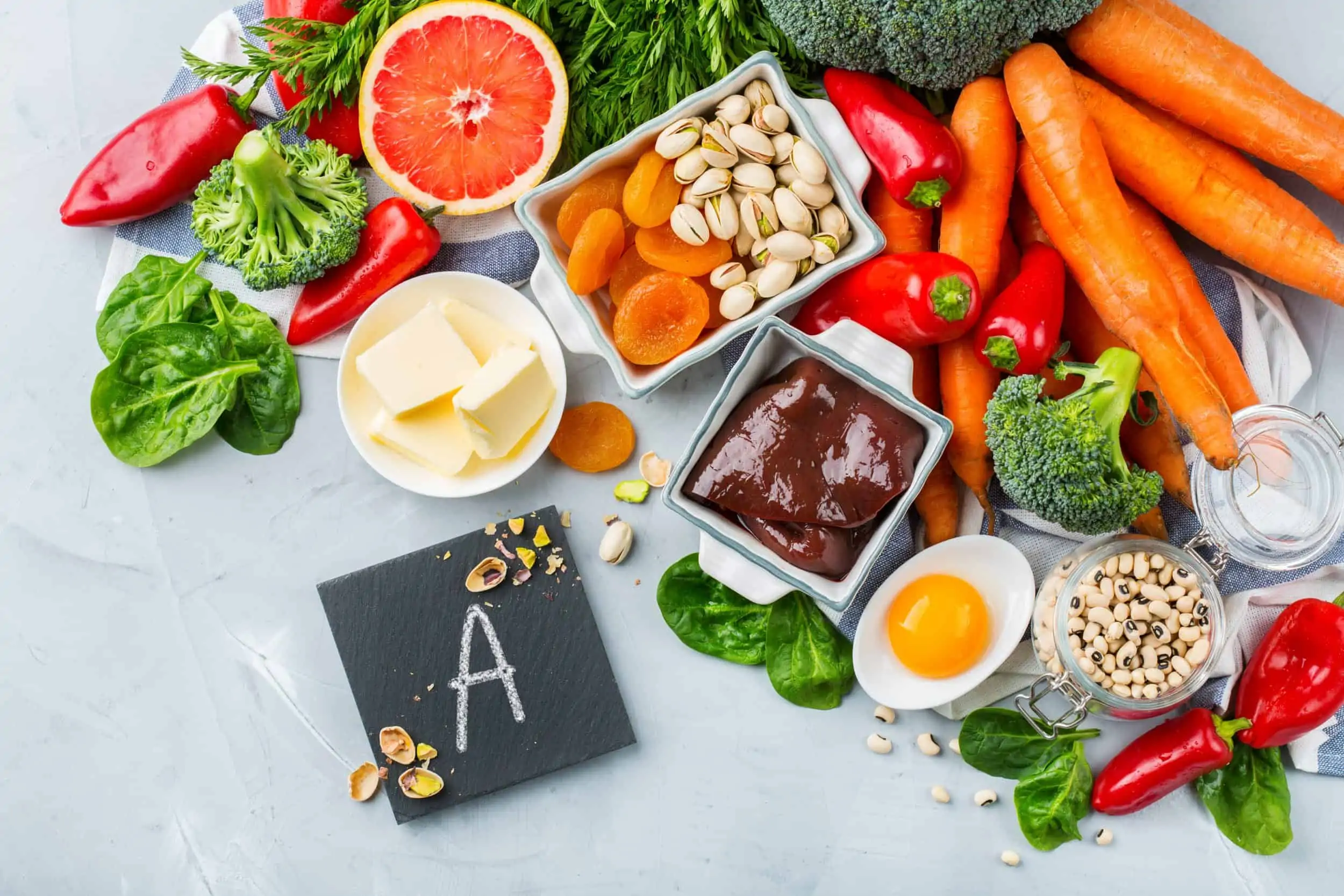
Vitamin A rich foods include:
- Some leafy greens (cabbage, spinach, lettuce and parsley)
- Some vegetables (Butternut, sweet potato, carrots and tomatoes)
- Dairy products (milk, yogurt, cheese, butter)
- Organ meats (kidney and liver)
Vitamin B1 aka Thiamine
B1 helps the body process carbs and protein.
Like all the vitamins of the B complex, thiamine is water-soluble. So overdosing is highly unlikely. However, too little vitamin B1 can cause some issues. The first symptoms are a bit vague, as with many vitamins. You may experience things such as loss of appetite, nausea, fatigue and memory loss. Severe deficiency could result in nerve, brain and heart abnormalities. In general, women should be getting 1.1 milligrams per day, and men 1.2 milligrams per day.
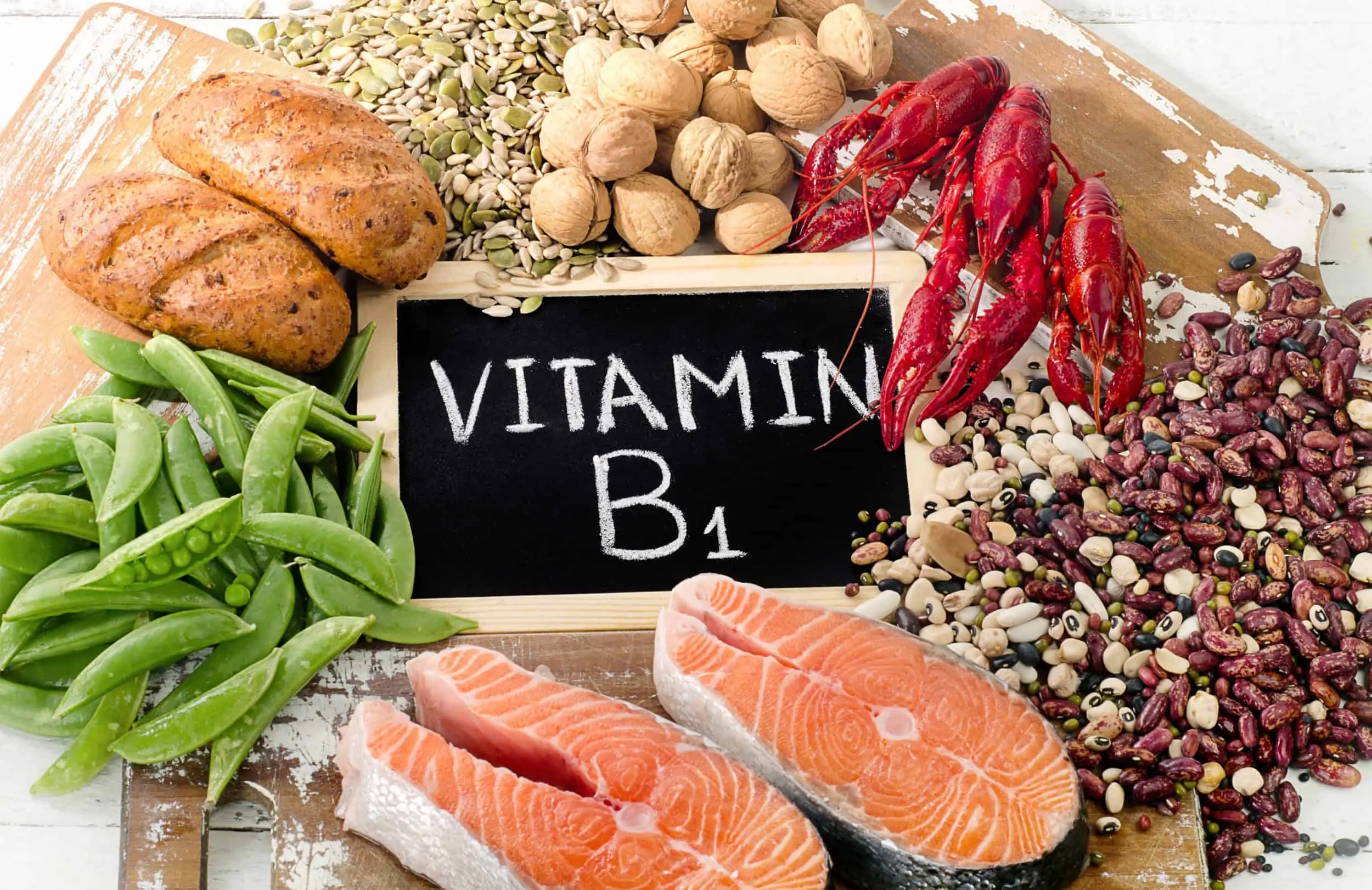
Foods containing thiamine include:
- White meats (pork, fish and poultry)
- Legumes (beans and lentils)
- Dairy products (milk, yogurt, cheese, butter)
- Some vegetables (beetroot, potatoes, tomato)
- Eggs
Vitamin B2 aka Riboflavin
Important to metabolic health, it helps the body convert food into energy. Plus, it assists in the production of red blood cells as well as being an aid in the repair of cells.
Part of the B complex, riboflavin is water-soluble and not stored in the body. So an overdose is highly unlikely and virtually impossible to reach just through food consumption. A vitamin B2 deficiency will show in the skin and lips, with dryness and cracks, as well as sores in and around the mouth. If severe, too little vitamin B2 could cause nervous system disruption. In general, women should be getting 1.1 milligrams per day and men 1.3 milligrams per day.
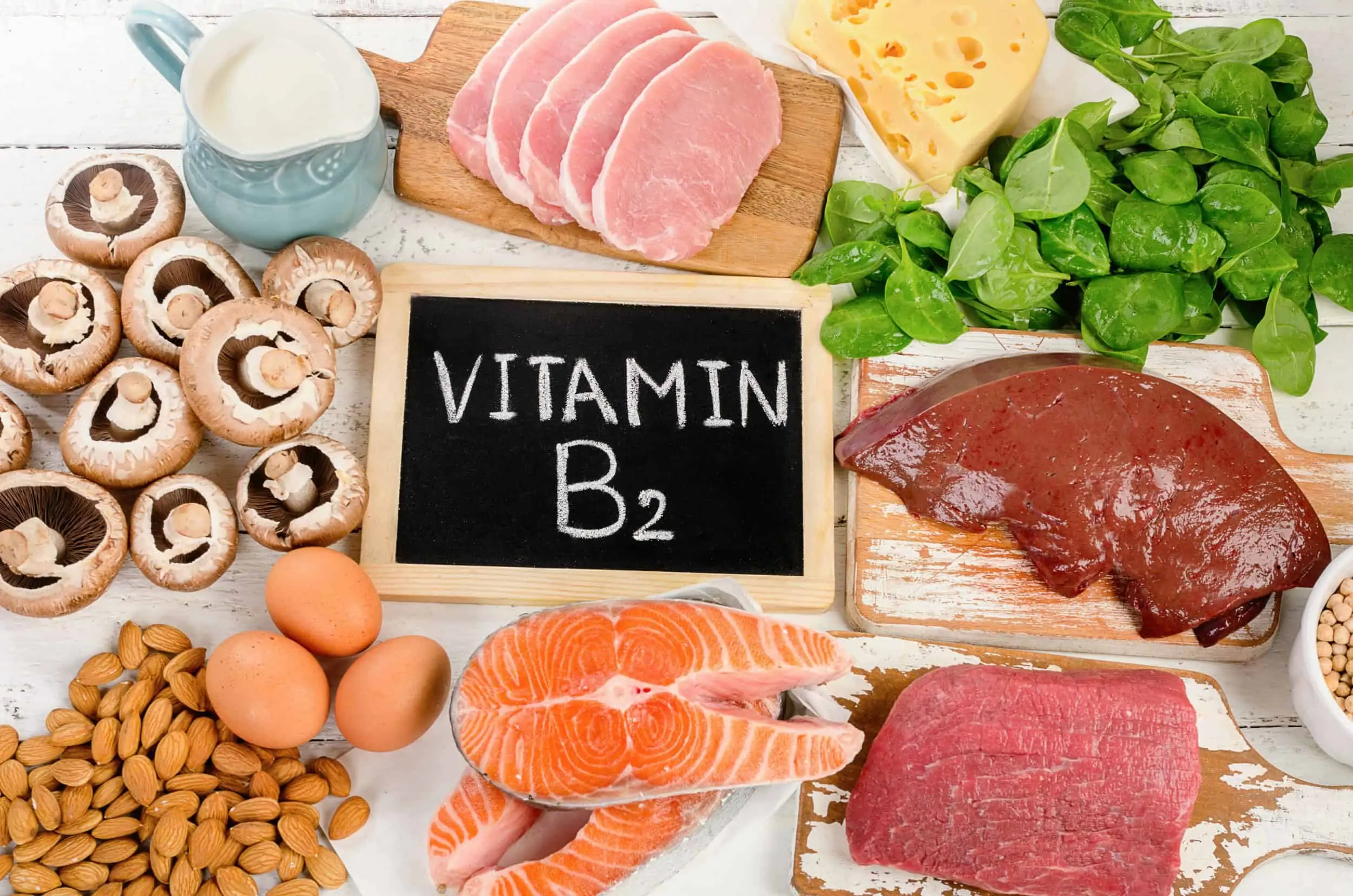
Some foods rich in riboflavin are:
- Eggs
- Organ meats (kidney and liver)
- White meats (fish, pork and poultry)
- Milk and milk products
- Tofu
- Almonds
- Avos
- Mushrooms
Vitamin B3 aka Niacin
Niacin, like riboflavin, aids with converting food to energy. It is important for a healthy digestive system and nervous system as well as skin. It is also particularly great for balancing cholesterol levels.
Being a water-soluble vitamin, overdose from daily food nutrition is rare. Most people are also getting enough niacin in their diets, so it should not be something many need to worry about. Signs of possible deficiency include skin and mouth rashes, vomiting, fatigue and headaches. In general, women should get 14 milligrams per day and men 16 milligrams.
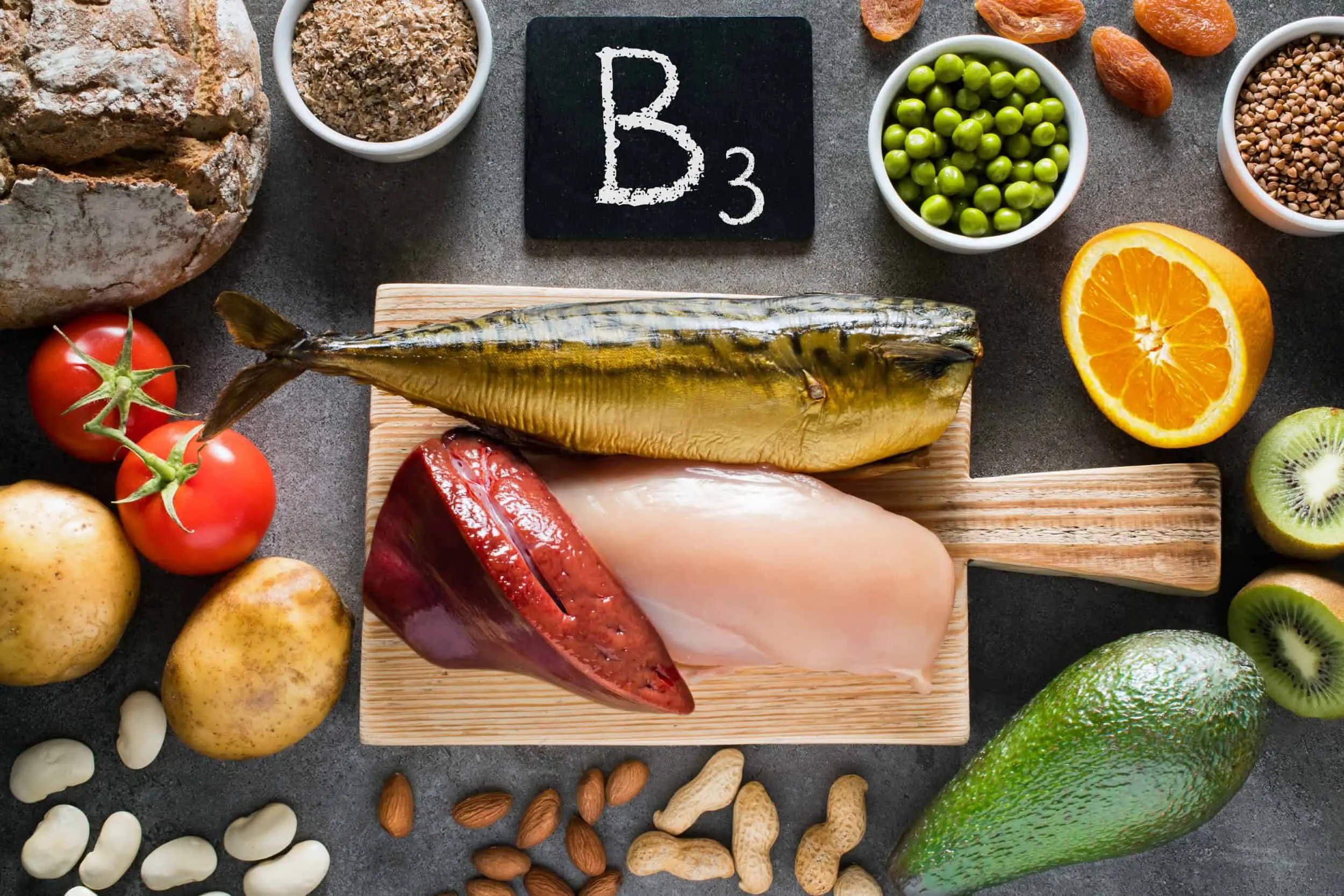
Niacin-rich foods include:
- Fish and Poultry (the body makes niacin from the tryptophan in these meats)
- Peanuts
- Avos
- Mushrooms
- Potatoes
- Whole wheat products (vitamin B3 comes from the bran in the outer layer of kernels)
Vitamin B5
Vitamin B5 plays an important role in the creation of energy from fats and carbs, as well as red blood cell production. Plus, it is vital in the creation of the sex and stress-related hormones produced in the adrenal glands.
All adults should look at getting 5 milligrams per day in. Again, an overdose or deficiency of this vitamin is highly unlikely. It is also a water-soluble nutrient.
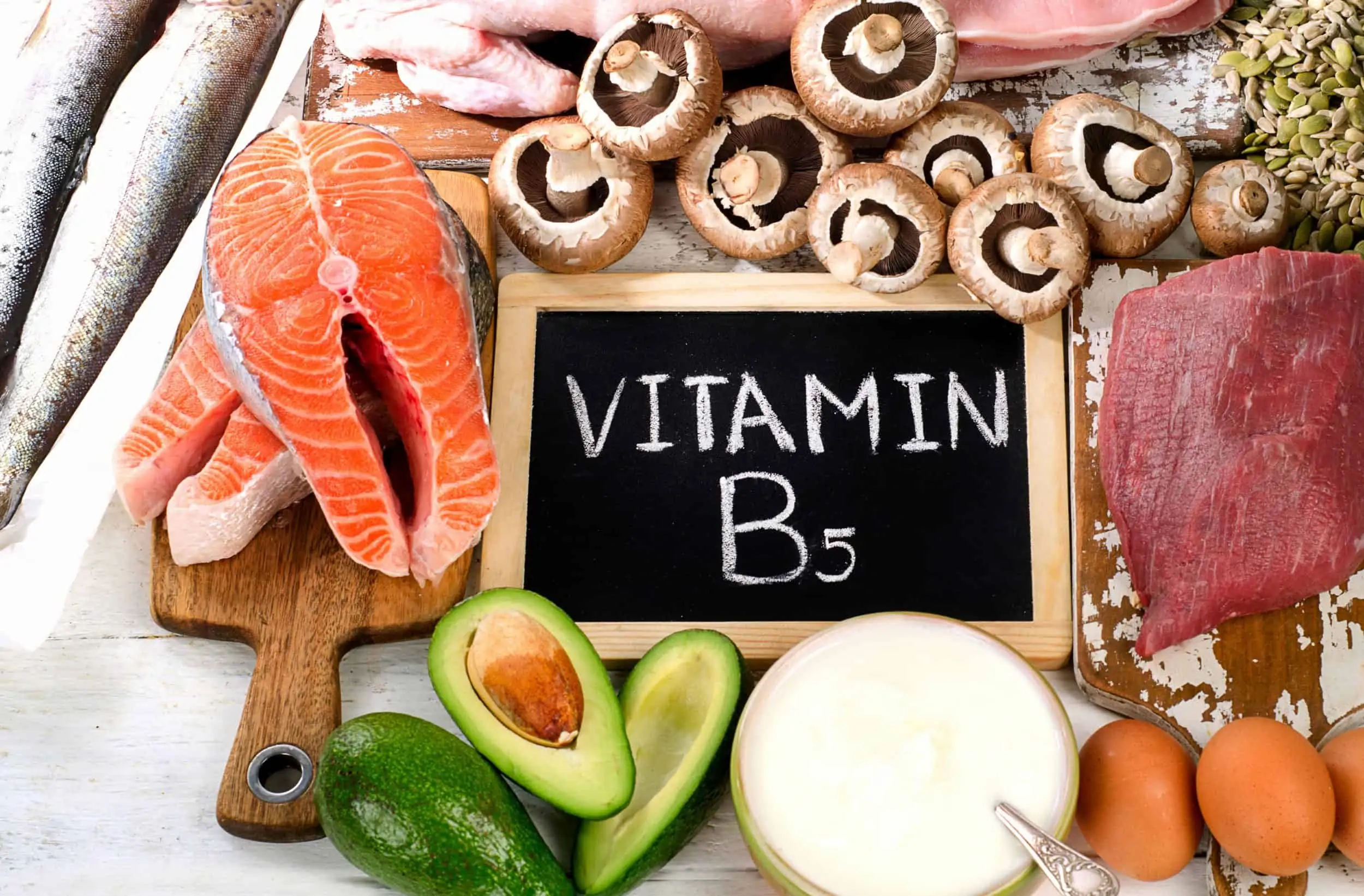
Great sources of vitamin B5 are:
- Organ meats (kidney and liver)
- White meats (fish, pork and poultry)
- Avos
- Mushrooms
- Potatoes
- Tomatoes
- Oats and brown rice
Vitamin B6
Like many vitamins from the B complex, B6 aids metabolism and the immune system. It also plays an important role in brain development and in the creation of neurotransmitters such as serotonin and dopamine.
A water-soluble vitamin, exposing your body to too much B6 through food is very unlikely. However, overdosing through supplements can be harmful, causing nervous system damage that will result in a lack of muscle control and coordination. Signs of a deficiency could include skin rashes, cracked lip corners and a glossy tongue. In general, adults should be getting about 1.3 milligrams per day, increasing this slightly to about 1.5 milligrams after the age of 50.
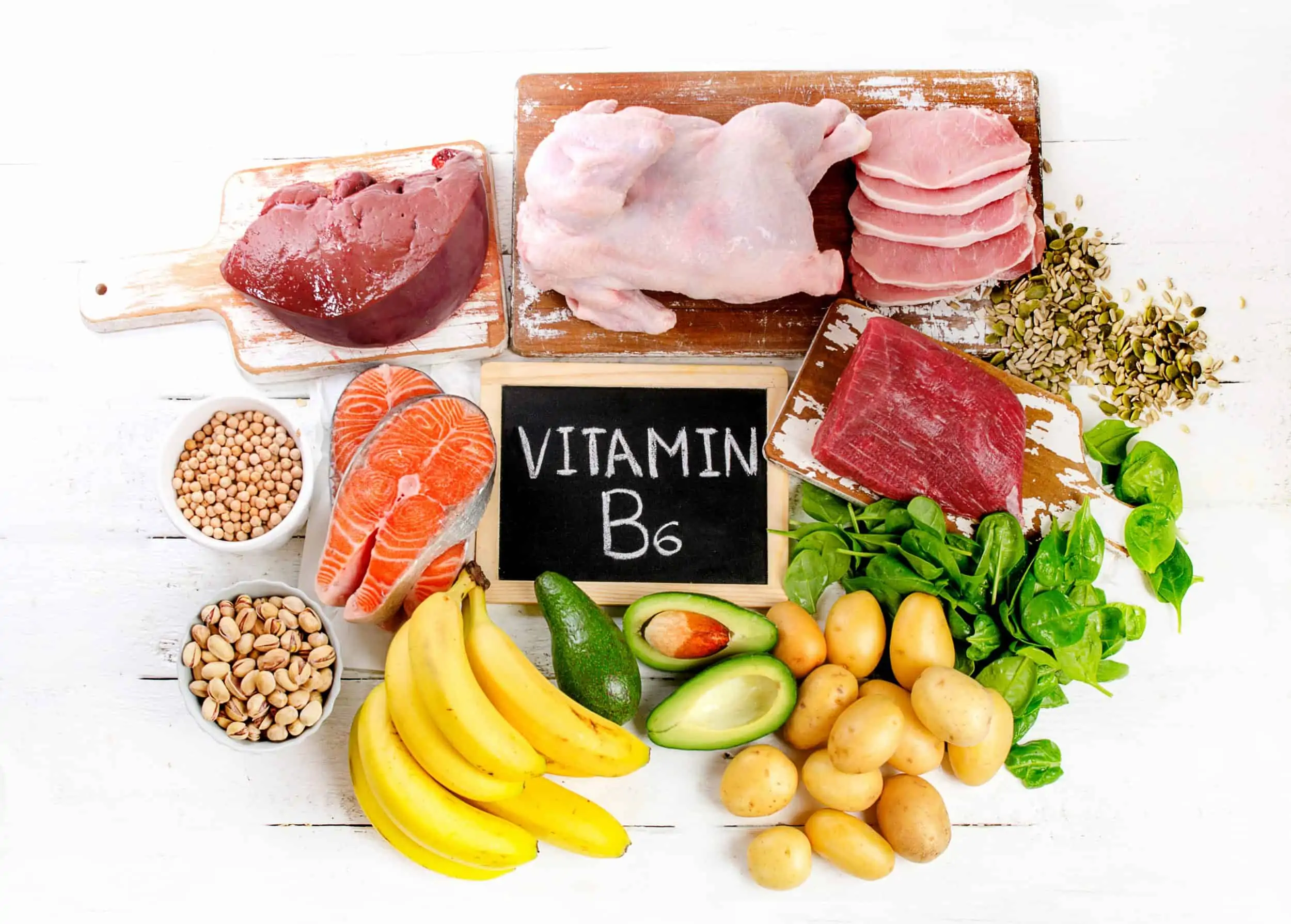
Foods containing Vitamin B6 include:
- Organ meats (kidney and liver)
- White meats (fish, pork and poultry)
- Bananas
- Avos
- Potatoes
- Legumes (soya beans, chickpeas and lentils)
Vitamin B7 aka Biotin
Biotin helps our body make fats and proteins. And it is vital in the health of our eyes, skin and hair. Plus, it plays an important role in the function of our brain and liver.
In general, adults should be getting 30 micrograms per day. Deficiency is uncommon because biotin is widely available in foods. And our “good” gut bacteria can actually synthesize more biotin than the body needs. However, certain ailments could lead to a deficiency, in which case, symptoms such as hair loss and skin rashes may be experienced. The signs of excessive Vitamin B7 are similar, so self-diagnosing can be dangerous. Having said that, it is a water-soluble nutrient and an overdose of biotin through food consumption is unlikely. But should you wish to take supplements, first consult with a medical practitioner.
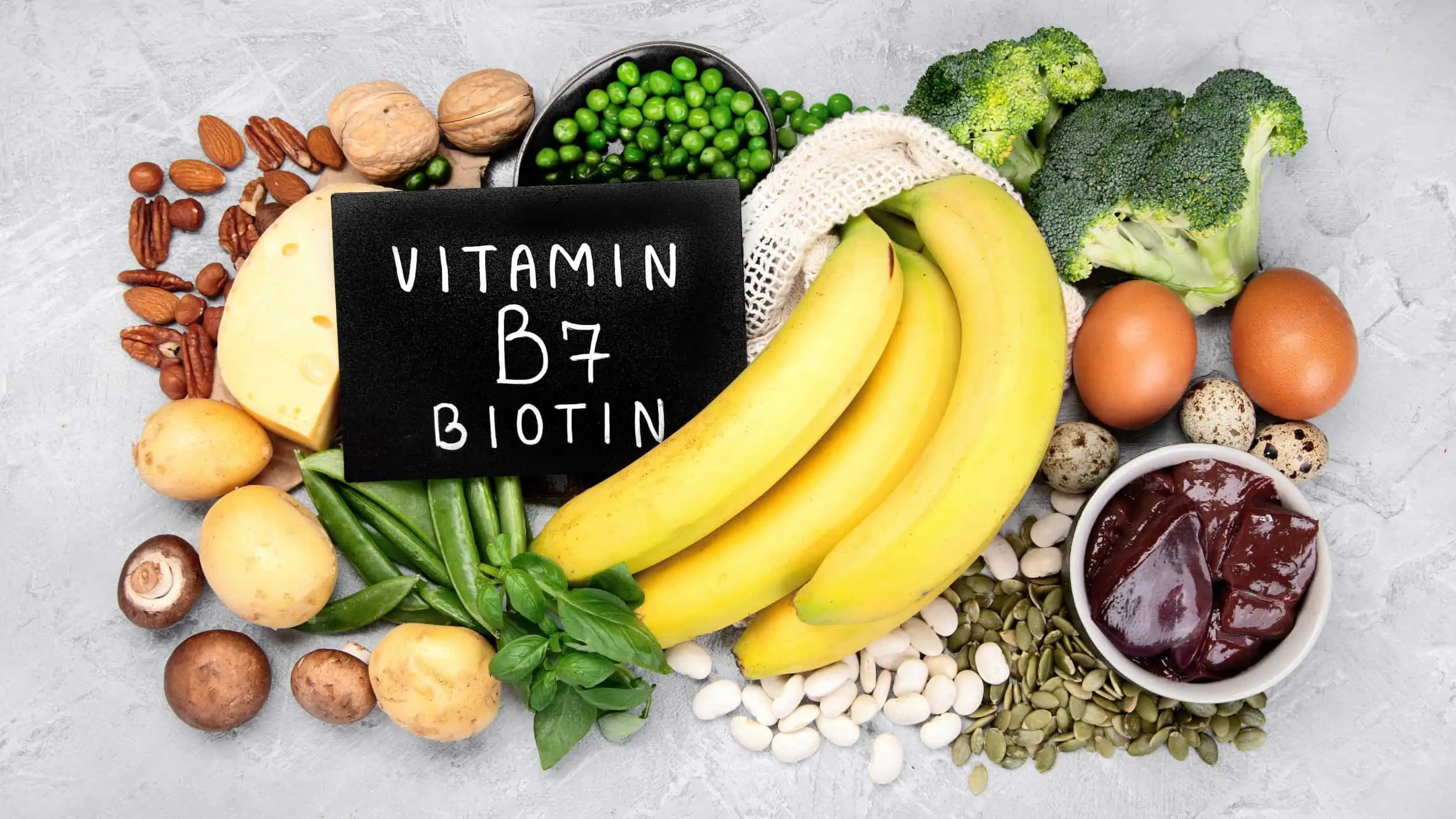
Some great sources of biotin are:
- Nuts (walnuts and peanuts)
- Milk
- Egg yolk
- Some fruit (bananas, raspberries and avos)
- Mushrooms
- Cauliflower
- Fish (salmon and sardines)
Vitamin B12
Vitamin B12 helps the body create DNA, crucial in the maintenance of a healthy brain and nervous system. Along with this is aids in the creation of red blood cells.
In general, adults should look at an intake of 2.4 micrograms per day. Deficiencies in B12 are mostly a concern for people with specific diets, such as vegans. Short-term, a lack of this vitamin in your daily nutrition will result in anemia. Long term, it could result in nerve and brain damage. Being another water-soluble vitamin, there is no known upper limit. And B12 has very low toxicity levels. So overdosing is highly unlikely. Should one overdo it with supplements, some negative side effects may be experienced, such as acne and other skin conditions.
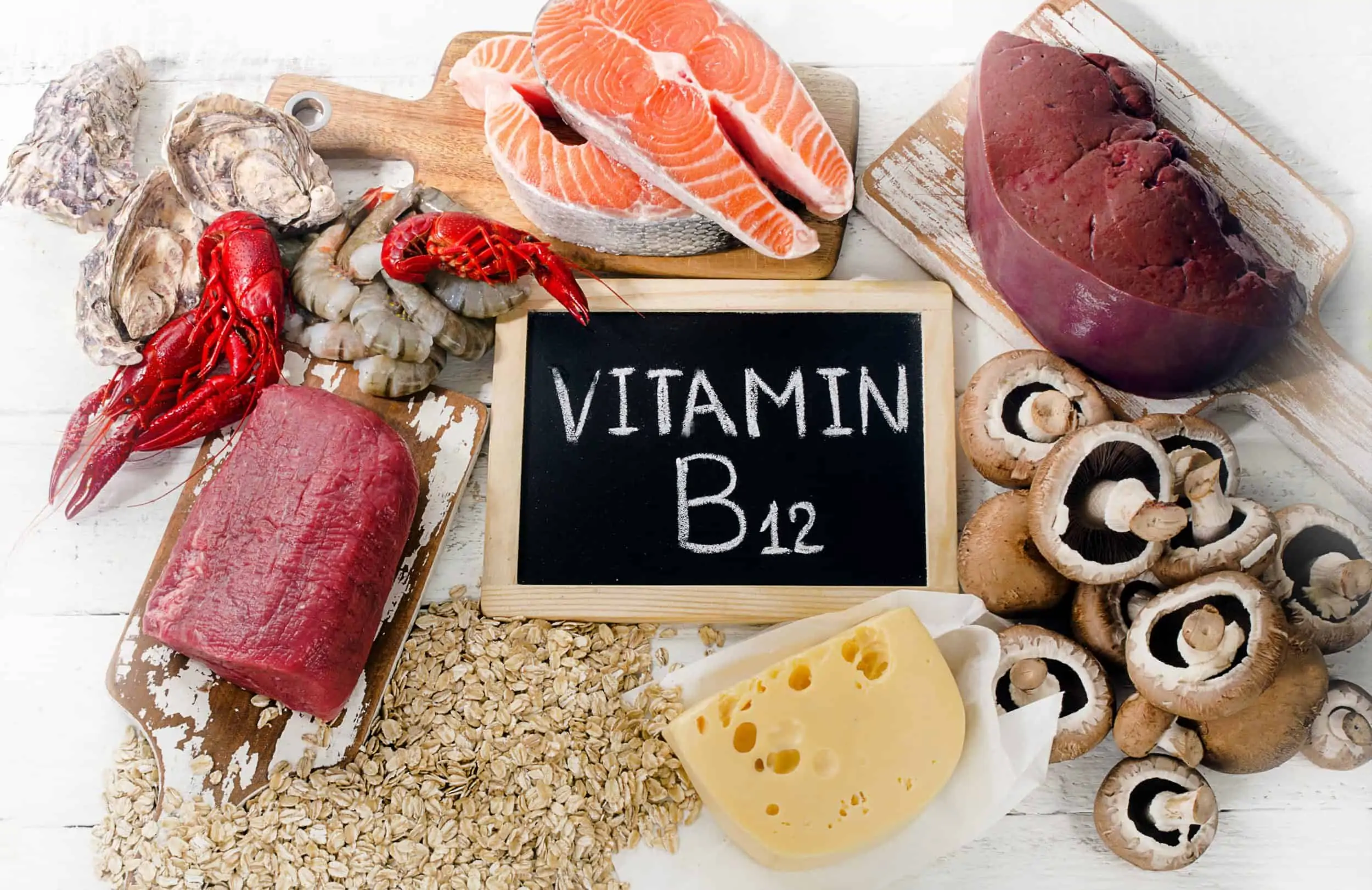
Foods containing Vitamin B12 include:
- Dairy products (milk, yogurt, cheese, butter)
- Eggs
- Many types of meat (poultry, fish, beef)
- Fortified foods, such as some cereals
Vitamin C
Vitamin C is important in assisting the body to absorb iron. On top of this, it aids in wound healing and protection from cell damage. Making it great for the prevention of some diseases, such as scurvy.
In general, women should get 75 milligrams per day, and men 90 milligrams. Vitamin C is a water-soluble nutrient, so too much dietary consumption is unlikely to be harmful. Although it’s a good idea to still stay well below the daily upper limit of 2000 milligrams. Too much of this vitamin could result in an upset tummy. Too little vitamin C will result in diseases such as scurvy, causing swelling and sores in the mouth as well as skin issues.
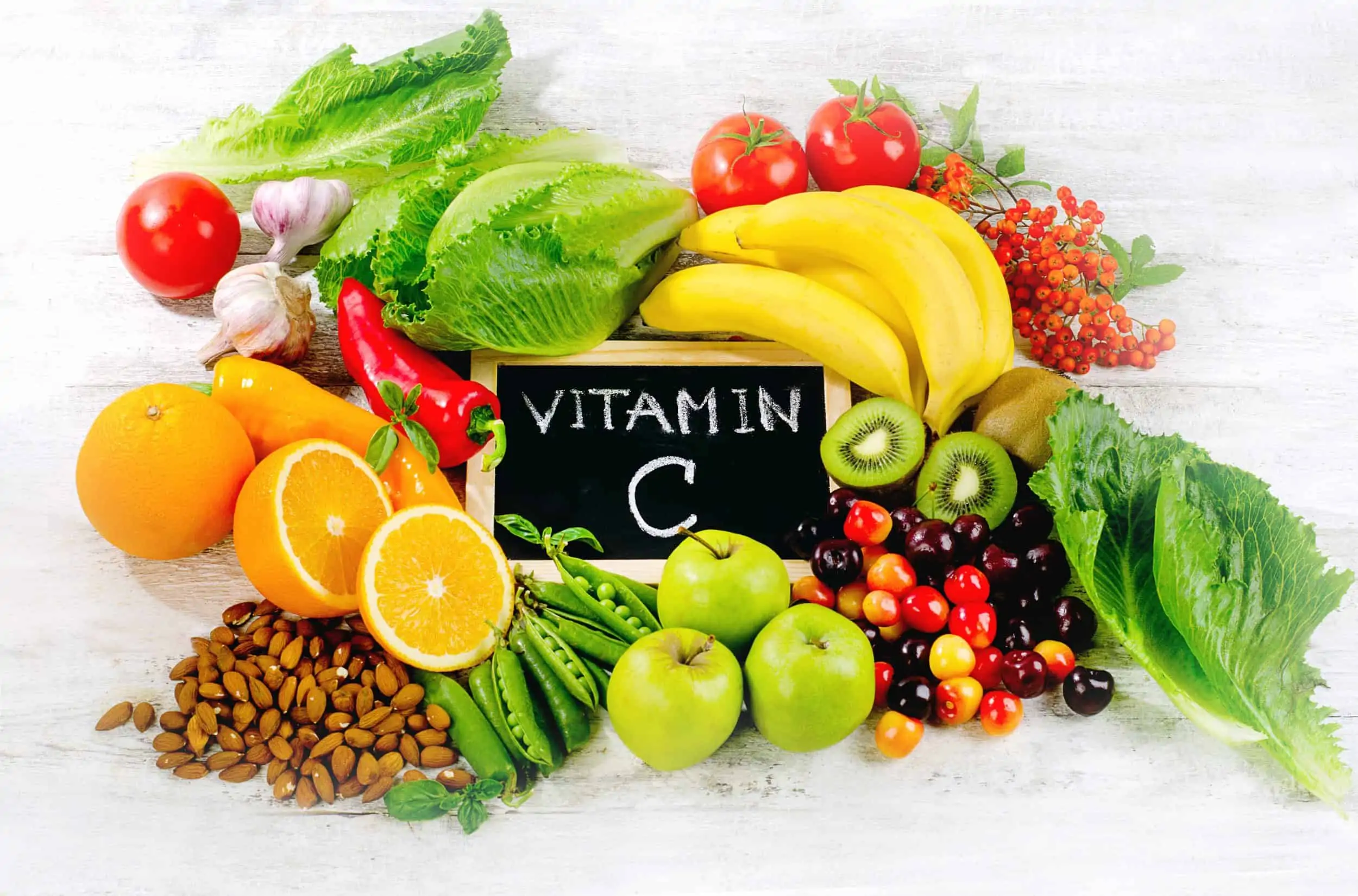
Great sources of vitamin C are:
- Many fresh fruits (citrus fruits, mango, bananas, strawberries, kiwis)
- Many vegetables (Cabbage, carrots, peppers, tomatoes, broccoli)
Vitamin D
Vitamin D is vital in the absorption of calcium from the small intestines, as well as regulating calcium and phosphate levels within the body. Making it an important factor in maintaining healthy teeth, bones and muscles.
In general, adults need 600 IU per day (about 15 micrograms). Vitamin D is fat-soluble and can be stored by the body. However, the main issue that arises with a build-up of vitamin D in the body will be high blood calcium levels, causing negative effects on bones and muscles as well as side effects such as vomiting and fatigue. A lack of vitamin D can be equally harmful, potentially leading to bone deformities in children, and bone pain caused by a condition called osteomalacia in adults.
Many of us know of vitamin D from sunlight! And it is completely true, ultraviolet light that we absorb from the signs boosts our bodies with vitamin D. But we can also get it in from some foods.
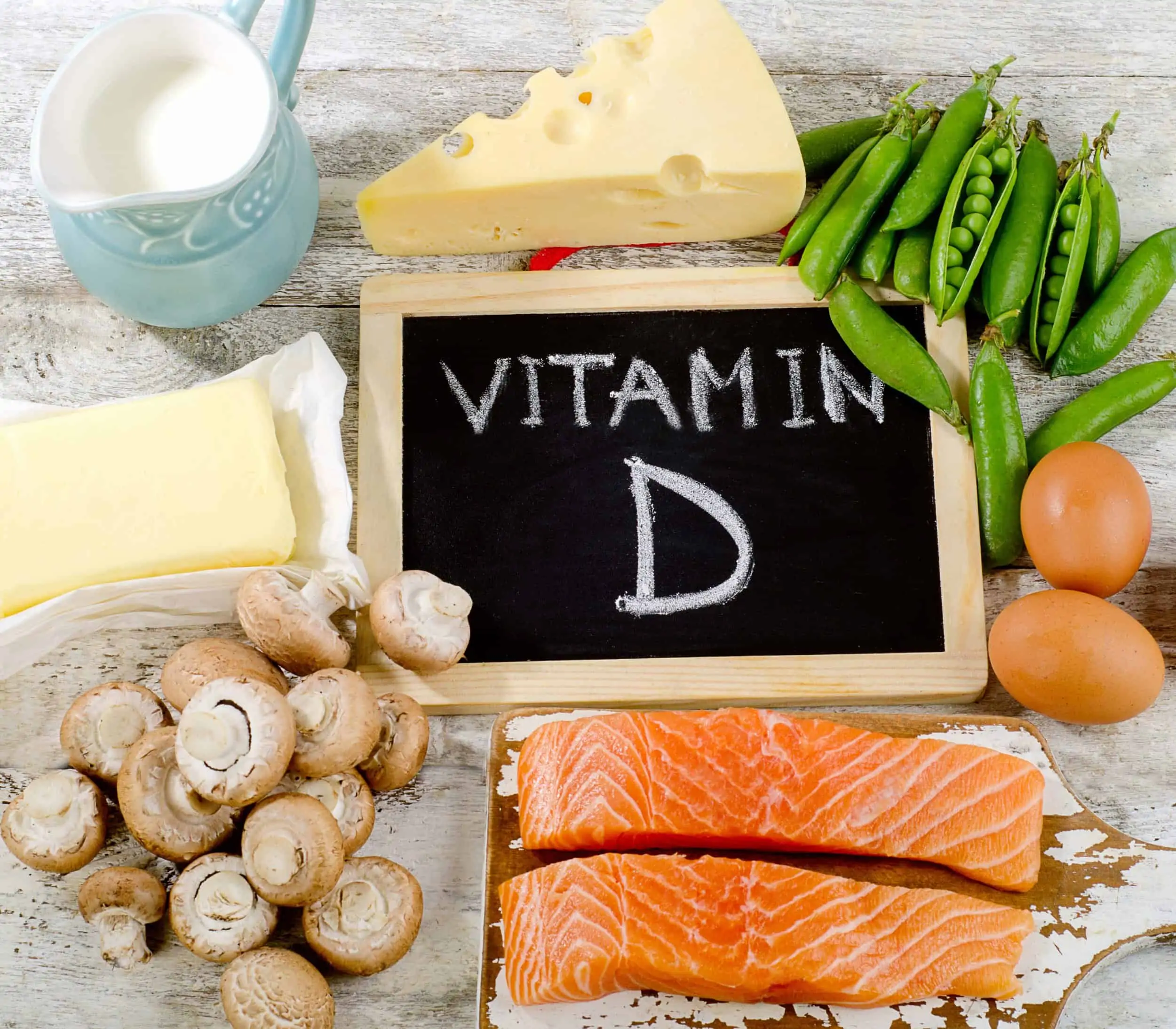
Food sources of vitamin D include:
- Oily fish (salmon, sardines, herring and mackerel)
- Egg yolks
- Beef liver
- Fortified foods such as cereals
Vitamin K
A vitamin that is crucial for blood clotting.
As a result, a deficiency in Vitamin K will lead to things like excessive bleeding of wounds, as well as easy bruising or blood in the urine. Vitamin K is fat-soluble, however, toxicity is rare and unlikely to result from eating foods containing vitamin K. But bear in mind that taking any type of supplement can lead to unnaturally high levels and side effects such as jaundice and hemolytic anemia in adults. In general, women should look at a daily intake of 90 micrograms and men 120 micrograms.
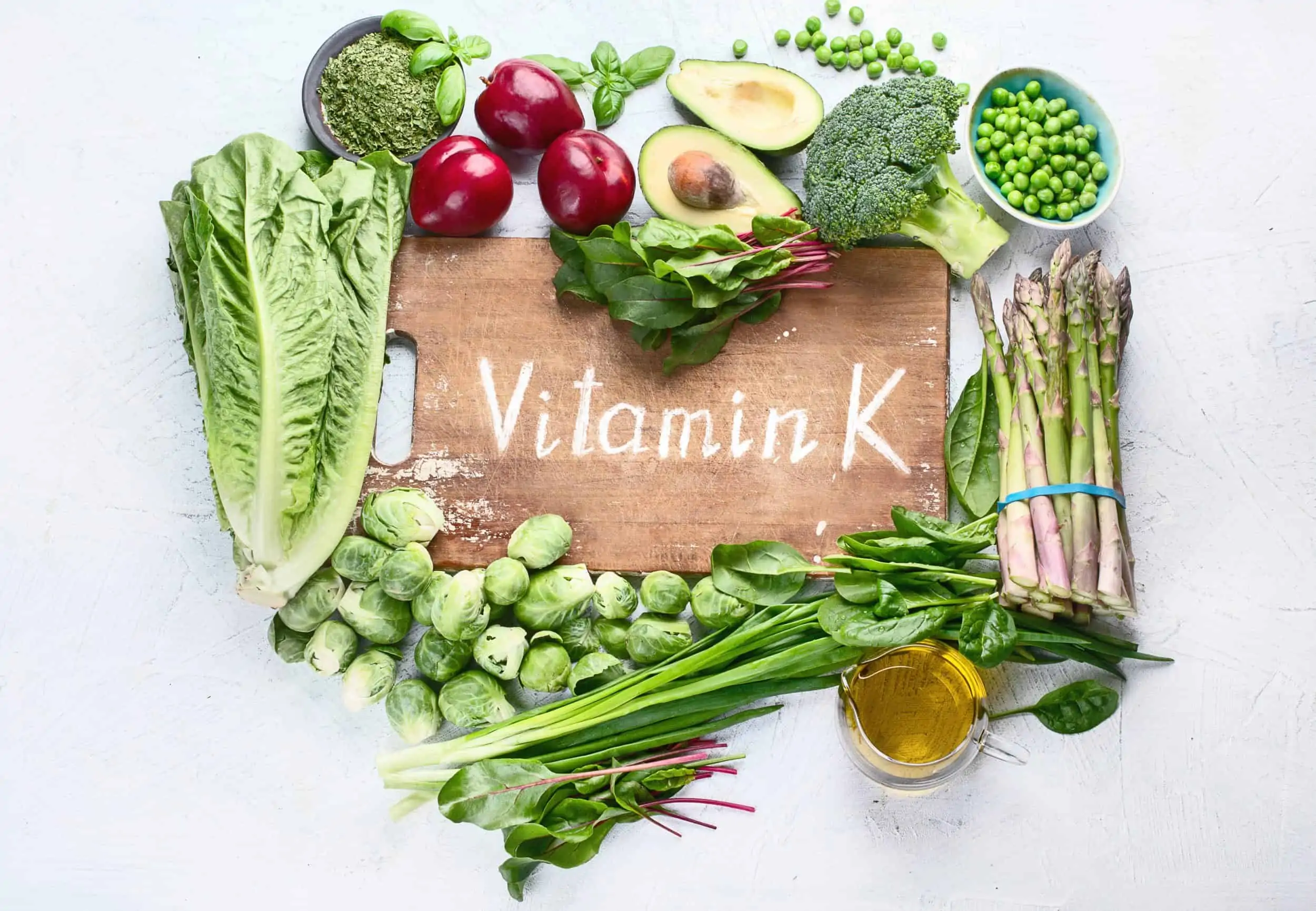
Foods containing vitamin K include:
- Leafy green vegetables (cabbage, spinach, kale, broccoli, lettuce)
- Some fruits (Prunes, kiwis and avos)
The Bottom Line
Nutrition is a topic quick to overwhelm anyone. Many symptoms of high and low nutrient levels are vague and or overlap, and to add to this, we also have to consider if our bodies are correctly absorbing nutrients consumed. For example, you could be so sure of an iron deficiency in your system, and try up your iron intake. But if your body isn’t absorbing the iron correctly, all the spinach in the world won’t solve the problem. In fact, you could then be causing further damage by unnecessarily increasing your vitamin A intake, which is also found in spinach. It is virtually impossible to self-diagnose.
So my advice would be, don’t obsess about vitamins and minerals, but make sure you meet your daily macro nutrition requirements, have variety in your diet, and avoid processed consumables as much as possible. Should you feel that there may be something wrong, seek help from a medical practitioner. And whatever you do, don’t take supplements without getting advice. Supplements have their place and can be of great aid in times of need. But, although it is hard to overdose on any one vitamin through dietary means, intake through supplements could prove damaging.
